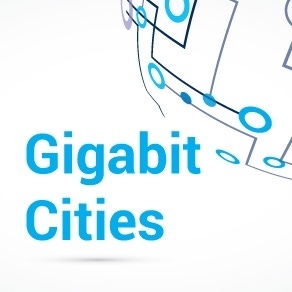Chattanooga makes 10-Gig the new broadband mile marker.

Not content to rest on its gigabit laurels, the town of Chattanooga, Tenn. is now claiming the title of first 10-Gig city, thus disputing a similar claim by Salisbury, N.C. with the argument that Chattanooga is making its 10G service available immediately across a "large community-wide territory."
In contrast, Salisbury is only offering 10-Gig service to a select few locations via point-to-point Ethernet, with plans to extend the service to residential customers in 2016. (See Carolina Town Becomes First US 10-Gig City.)
Chattanooga's new broadband service comes courtesy of the town's municipally owned power utility company, EPB Fiber Optics . EPB's high-speed fiber network supports the town's smart grid, which includes automated power switches that re-route power whenever there's a localized outage.
EPB was also a pioneer in using that same fiber network to launch consumer broadband service with speeds up to 1 Gbit/s in 2010. Now, the utility company is ramping up to multi-gigabit speeds with a 10-Gig residential service available for $299 per month. Installation is free, and there is no contract required. EPB is also offering new speed tiers to businesses, with products at the 5Gbit/s and 10Gbit/s levels. Prices vary for the professional packages.
The rollout of gigabit and multi-gig broadband access networks is spreading.
Find out what's happening where in our dedicated Gigabit Cities content channel
here on Light Reading.
The new multi-gig services come less than three months after EPB declared that it would be able to offer 10G service within the year, with the upgrade made possible through the use of Next-Generation PON technology (NG-PON or TWDM-PON). (See EPB: 10Gbit/s Service Feasible Within a Year.)
Alcatel-Lucent (NYSE: ALU) is the vendor behind the implementation, and the win is an important one for that company, particularly as other service providers start to investigate their own network upgrade options. In August, Verizon said it would issue a request for proposals before the end of the year, with a plan to roll out NG-PON in the not-too-distant future. Potential contenders for the business include not only Alcatel-Lucent, but also Adtran Inc. (Nasdaq: ADTN), Calix Inc. (NYSE: CALX), Cisco Systems Inc. (Nasdaq: CSCO) and Huawei Technologies Co. Ltd. (See Verizon Revs Up Wireline Race With NG-PON2.)
In the near term, it's not entirely clear what consumers need broadband speeds of 10 Gbit/s for. But the same has been said every time broadband speeds have vaulted up another level.
Meanwhile, as a marketing tactic, gigabit and multi-gigabit deployments are driving the industry to move faster with broadband upgrades, whether consumers need them or not. Google Fiber Inc. led the way on the marketing front when it launched its first gigabit service in Kansas City, and since then virtually all of the major US broadband providers have jumped on the gigabit bandwagon. Comcast Corp. (Nasdaq: CMCSA, CMCSK) even upped the ante when it skipped straight to 2-Gig service with its Gigabit Pro offering. (See Comcast trots out Gigabit Pro… at a price.)
Chattanooga, however, has made an effort to point out that its gigabit services are far more than a marketing gimmick. A recent study by the University of Tennessee at Chattanooga found that the city's gigabit network has helped create at least 2,800 jobs and brought in at least $865.3 million in regional economic and social benefits. That's a fair return on the $220 million that EPB spent to deploy its fiber network in the first place.
— Mari Silbey, Senior Editor, Cable/Video, Light Reading
About the Author(s)
You May Also Like











